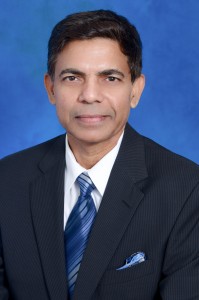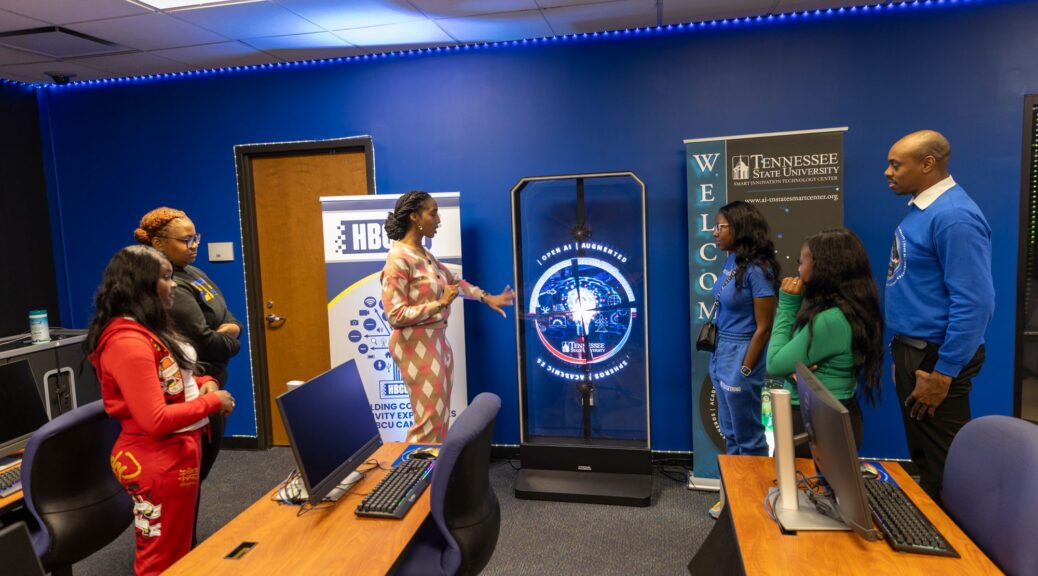NASHVILLE, Tenn. (TSU News Service) – As a senior majoring in Human Performance and Sports Science (HPSS) at Tennessee State University, Noah Pennington is on the verge of realizing his dream of operating within a major sports organization. His recent internship with the NFL’s Tennessee Titans marks an extraordinary step toward that goal, which also showcases the unique partnership between TSU and the Titans that provides students access to the professional sports world.
An Indianapolis native, Pennington completed a four-week paid internship with the Titans in December, where he gained rich insights into leadership, management styles, and logistical operations within a professional sports franchise. “Working alongside key decision-makers and participating in meetings about the construction of the new stadium was a transformative experience,” Pennington said. “I had the opportunity to absorb knowledge from industry veterans, which solidified my career aspirations in sports management and operations.”
TSU has long enjoyed a productive partnership with the Titans, allowing the TSU Tigers football team to host home games at Nissan Stadium. The collaboration, which extends beyond athletics, engages with the community through the Titans’ ONE Community platform, which targets Nashville’s underserved areas to foster opportunities in education, neighborhoods, and economic development.

Pennington’s internship exemplifies how TSU students benefit from this relationship. Earlier in his college career, Pennington participated in a Maymester course designed to connect sports management students with Titans staff across various departments – from finance to legal affairs. This immersive experience sparked his interest and laid the groundwork for his successful internship application.
“It’s incredible how TSU, particularly the HPSS department, has helped guide me to these opportunities,” said Pennington. “Dr. (Jason) Smith and Dr. (Timothy) Jones played pivotal roles in my development, providing the mentorship and connections necessary to thrive in the competitive sports industry. The hands-on experience through the internship complemented my classroom learning perfectly.”

Dr. Robbie Melton, TSU’s Provost and Vice President of Academic Affairs, expressed pride in TSU students like Pennington. “We are committed to empowering our students by partnering with industry leaders who can provide real-world experience. Noah’s journey with the Titans is a testament to our successful collaboration and the bright futures that await our students,” Melton said.
Johari Matthews, a TSU alum and Vice President of the ONE Community and Titans Foundation, said, “The partnership that we have with TSU has been instrumental in our approach to better serving students by introducing them to careers in the sports industry. Noah is a perfect example of how partnerships like this can open doors and provide hands-on experiences that level the playing field in the workforce. We look forward to the many things that he will accomplish in the future as we are certain that it is bright!”

Dr. Lolita D. Toney, TSU’s Assistant Vice President of Institutional Advancement, emphasized the importance of mentorship and professional development: “Noah and students like him gain invaluable hands-on experiences and mentorship touchpoints that will lay the foundation for their future careers. Hopefully, one day they too will be inspired to pay it forward.”
Dr. Jason Smith, HPSS department chair, praised Pennington for his exemplary work ethic and leadership during his internship. “Noah Pennington exemplifies our mission of bridging classroom learning with real-world application. His initiative, creativity, and strong work ethic have set him apart and served as an inspiration to his peers. He embodies the HPSS ideal: a driven student leveraging education and personal talent to excel in the professional sports world.”
Pennington is scheduled to graduate in May. He has already lined up a job offer, positioning himself perfectly to make significant contributions to the sports industry.
For more information on the TSU Human Performance and Sports Sciences program, visit https://www.tnstate.edu/hpss/.




























